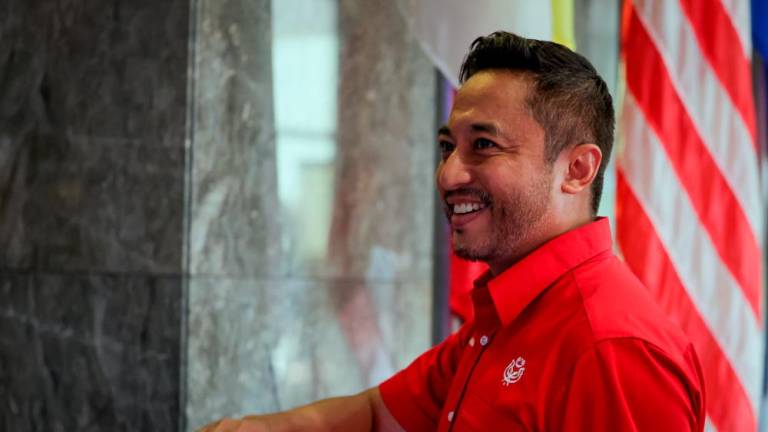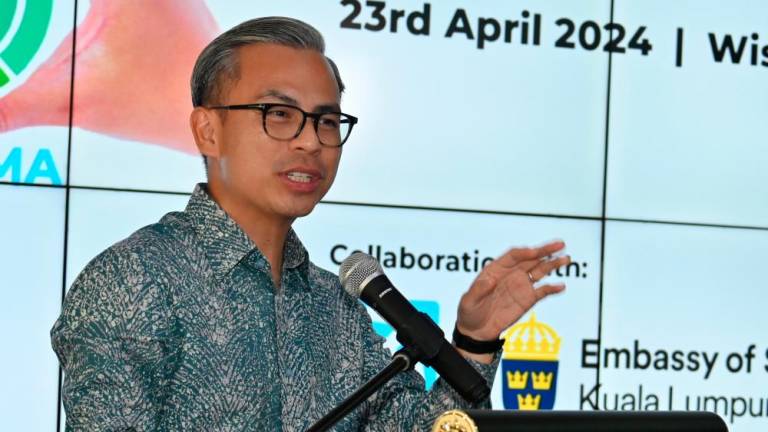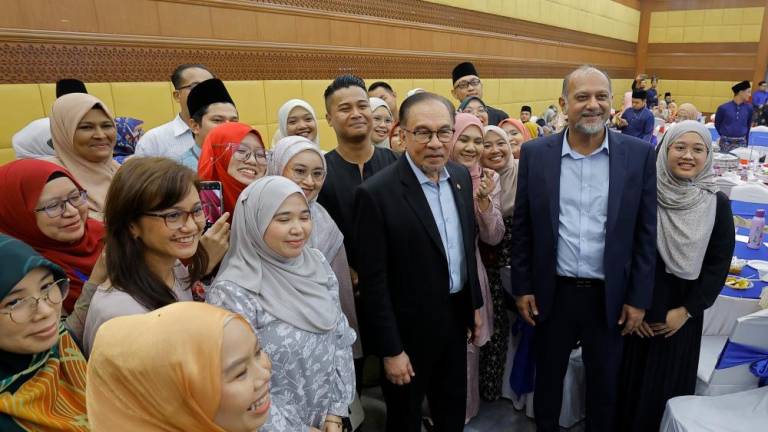PETALING JAYA: It is too soon for Umno and PAS to start making plans to form the next government.
While the two parties combined can get the numbers, it remains difficult, if not impossible, for them to take power without the participation of the non-Malays and non-Muslims, according to two political analysts.
Director of Asia Institute Tasmania Dr James Chin said about 140 of the 222 seats in the current Parliament have more Malay than non-Malay voters, making it possible for a Malay-Muslim alliance to win enough seats to take power.
Former Universiti Sains Malaysia lecturer Dr Ahmad Atory Hussain, being more conservative with the numbers, estimates that in Peninsular Malaysia, only 96 seats are truly Malay-majority. But, he added, combined with the Malay-majority seats in Sabah and Sarawak, any Malay party or alliance can be assured of 112 seats to make a simple majority.
But that is only on paper.
It would be like counting the proverbial eggs before they are hatched if Umno and PAS think they can win enough seats to form a government on their own strength.
On Tuesday, Umno and PAS announced that they would “collaborate” to strengthen the opposition bloc so that it could better ensure checks and balance.
At the same time MCA and MIC, which are opposed to any cooperation with PAS, announced that they may leave Barisan Nasional (BN).
However, Umno acting president Datuk Mohamed Hasan has struck a more conciliatory note by insisting that the two parties are still needed in BN.
Chin said the reality for Umno and PAS is that there are other Malay-Muslim centric parties (such as Parti Pribumi Bersatu Malaysia and Parti Amanah Negara) also looking for support from Malay voters.
Ahmad Atory, who agrees with this observation, said that to make up for this shortfall, Umno and PAS will still need the help of MCA, MIC and Gerakan to garner the support of the non-Malays.
He said the results of the last two by-elections — Cameron Highlands and Semenyih — also show that non-Malays are returning to the BN fold.
Ahmad Atory said there is still a possibility that the non-Malays will support MCA, MIC and Gerakan even if PAS is in the fold. “The non-Malays, particularly the Chinese, are pragmatic. They will vote for whoever delivers,” he added.
He also pointed out that MCA, MIC and Gerakan were able to exist side-by-side with PAS when the Islamist party was in BN from 1973 to 1977. “So why is it impossible now,” he asked.
Meanwhile, two other analysts have expressed opposing views on how big an impact the Umno-PAS cooperation will have on PH.
Assoc Prof Dr Jeniri Amir of Universiti Malaysia Sarawak said it was a mistake for PH to dismiss the collaboration as inconsequential.
He pointed out that the two parties are the largest Malay-based political organisations in Malaysia and joining hands was a pragmatic move for both sides.
“PH can’t take this lightly. If Umno and PAS play their cards right they have the potential to garner strong grassroots support. This will be a big headache for the ruling coalition,” he told theSun today.
However another analyst, Dr Lim Teck Ghee, believes that PH still has the upper hand. “No party or coalition can win power by appealing to only one or two communities,” he said.
Lim described the Umno-PAS partnership as a “marriage of desperation and political expediency” rather than one based on principles. “It’s not so much about protecting Malay rights and interests,” he said.
“I’m confident majority of the voters, except possibly those in Kelantan and Terengganu, will continue to support a multi-racial and multi-religious coalition rather than one that explicitly serves the interest of only one race.
“Together, Umno and PAS have only 55 seats in the Dewan Rakyat now, just a quarter of the total of 222. I don’t think PH should be concerned,” he added.














